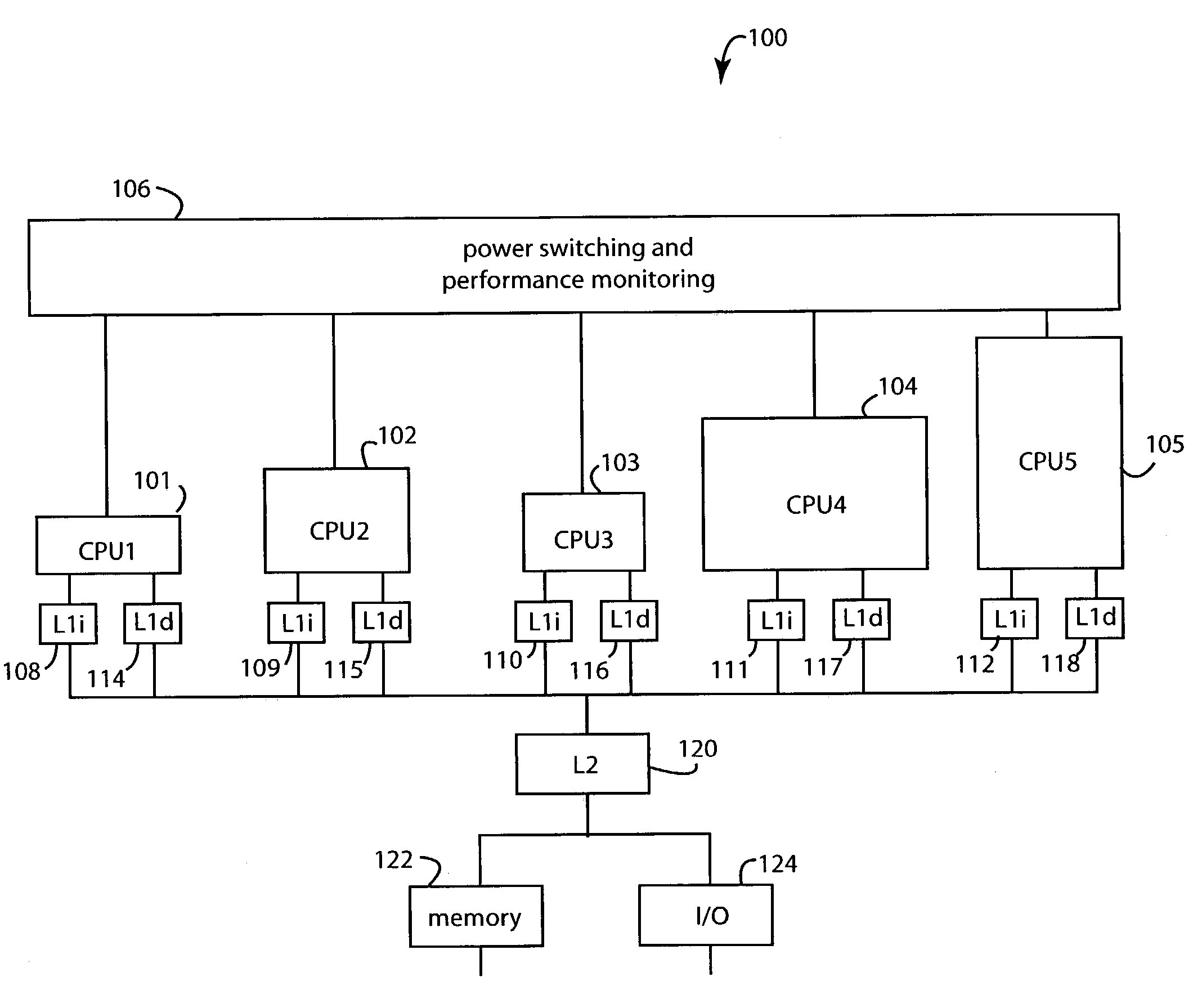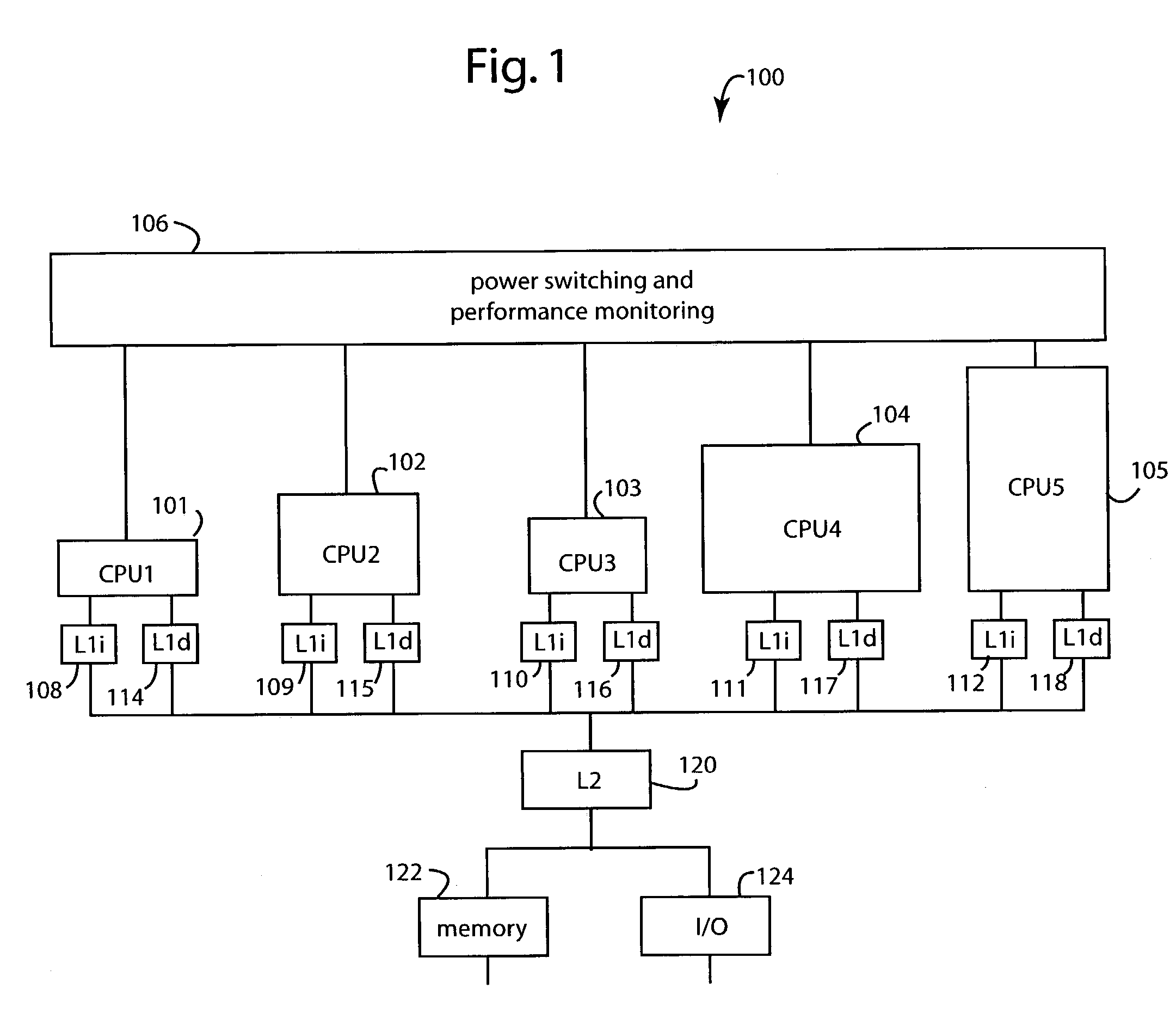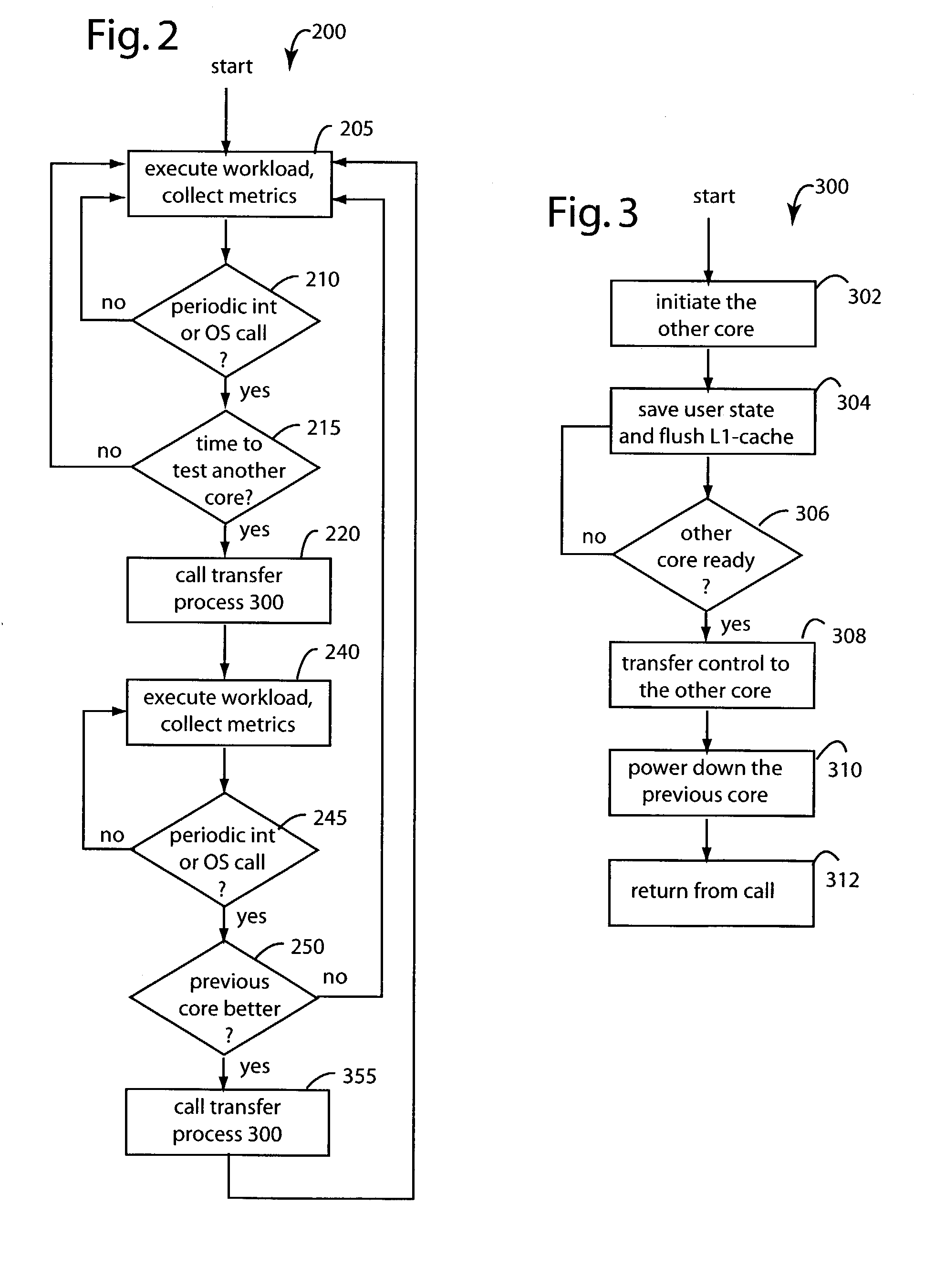Dynamically selecting processor cores for overall power efficiency
a processor core and power efficiency technology, applied in the field of computer systems, can solve the problems of high performance, waste of computing resources and power to operate them, and inability to match software with modest resource requirements, so as to reduce power supply demands, save operating power, and save battery power in portable computers
- Summary
- Abstract
- Description
- Claims
- Application Information
AI Technical Summary
Benefits of technology
Problems solved by technology
Method used
Image
Examples
Embodiment Construction
[0016]FIG. 1 illustrates a multi-core processor system embodiment of the present invention, and is referred to herein by the general reference numeral 100. Multi-core processor system 100 is a heterogeneous multi-core and core-switching implementation in a chip-level multi-core processor (CMP) with multiple, diverse processor cores that all execute the same instruction set. Each processor core includes significantly different resources and demonstrates significantly different performance and energy efficiency levels for the same application software. The operating system software tries to match the applications to the different cores during an application's execution to make the best use of the available hardware while maximizing energy efficiency at a given minimum performance level.
[0017]The system 100 hosts an operating system and application software that can execute single-threaded or multi-threaded. The operating system dispatches processing jobs to individual processor cores ...
PUM
 Login to View More
Login to View More Abstract
Description
Claims
Application Information
 Login to View More
Login to View More - R&D
- Intellectual Property
- Life Sciences
- Materials
- Tech Scout
- Unparalleled Data Quality
- Higher Quality Content
- 60% Fewer Hallucinations
Browse by: Latest US Patents, China's latest patents, Technical Efficacy Thesaurus, Application Domain, Technology Topic, Popular Technical Reports.
© 2025 PatSnap. All rights reserved.Legal|Privacy policy|Modern Slavery Act Transparency Statement|Sitemap|About US| Contact US: help@patsnap.com



